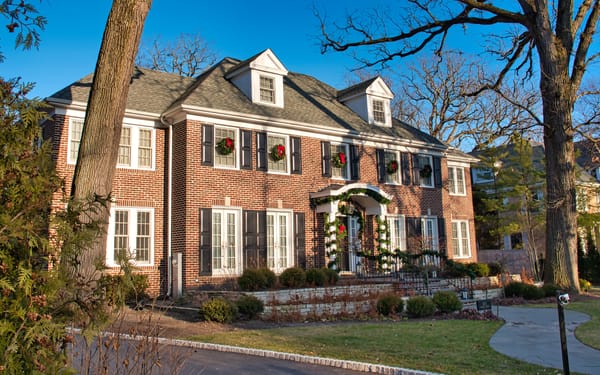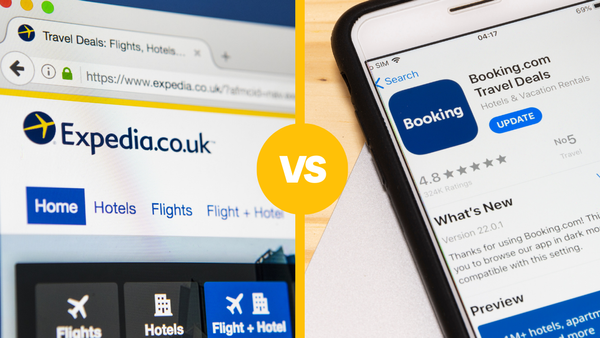Las Vegas Airbnb Laws Explained: A Host’s Guide to Hassle-Free Rentals

If you’re thinking about hosting on Airbnb in Las Vegas, there’s more to it than just listing your property. From getting the right licenses to understanding zoning rules and tax obligations, we'll break down everything you need to know.
Is Sin City calling? As one of the world’s top tourist hotspots, Las Vegas pulls in over 40 million visitors a year with its electric nightlife, world-class shows, casinos, and luxury resorts. While the iconic Strip is a must-see, travelers also branch out to explore spots like Red Rock Canyon and the Hoover Dam.
With so many people flocking to the city, short-term rentals—like the 12,000+ listings on Airbnb in 2024—have become a go-to for those looking for a more unique or personal place to stay, from trendy apartments to luxe vacation homes.
But, when it comes to short-term rentals, not every city plays by the same rules. What’s allowed in one area might be restricted or completely off-limits in another. For hosts in Las Vegas, keeping up with the city’s short-term rental laws is key to avoiding fines and making sure their listings are good to go.
This guide breaks down the latest Airbnb laws in Vegas, covering everything from licensing to operating legally in the city.
Key Regulations for Airbnb Hosts in Las Vegas
Since Vegas is such a hot spot for travelers from all around the globe, plenty of property owners are looking to cash in by joining the short-term rental industry and listing on platforms like Airbnb. But if you want to host here legally, you’ll need to follow the local rules that keep short-term rentals in check.
Here are the main short-term rental regulations every Las Vegas Airbnb host should know about:
Licensing Requirements
If you want to run a short-term rental in Las Vegas legally, you'll need to apply for a business license from Clark County. This rule covers properties in the county's jurisdiction, including a lot of the residential neighborhoods near the Las Vegas Strip.
Business License Application Process:
- Submit an Application: Hosts can apply for a short-term rental license either through Clark County’s online portal or by visiting the local licensing office.
- Provide Documentation: You’ll need to submit a few documents with your application, like proof that you own the property (or a lease agreement), a detailed floor plan, and proof of liability insurance.
- Pay the Application Fee: There’s a non-refundable fee, usually between $500 and $1,000, depending on the property’s size and location. You’ll need to pay this when you submit your application.
- Property Inspection: Before getting your license, your property will be inspected to make sure it meets health, safety, and fire codes. This means having smoke detectors, fire extinguishers, and clear emergency exits.
- License Approval: Once you’ve completed the steps and passed the inspection, you’ll get your short-term rental license. Keep in mind that it needs to be renewed regularly to stay valid.
Zoning Restrictions
Not all parts of the city allow short-term rentals. The Las Vegas municipal code has strict zoning laws that determine where these rentals can operate.
Residential vs. Commercial Zones:
- Residential Zones: In many residential areas, short-term rentals are either not allowed or have tight restrictions. Some neighborhoods only allow them if the host lives on the property (owner-occupied rule).
- Commercial Zones: Short-term rentals are generally more accepted in commercial areas, like those near the Las Vegas Strip, where they fit with the city's tourism vibe.
Proximity Restrictions:
Las Vegas also has rules to prevent too many short-term rentals from being clustered in the same residential neighborhood. Rentals often need to be a certain distance—usually around 660 feet—from other licensed short-term rentals to avoid overcrowding and disrupting local communities.
Owner-Occupied Requirement
In certain zones, particularly residential neighborhoods, Las Vegas requires that short-term rental properties be owner-occupied. This means the host must live on-site while renting out part of their home. The aim of this regulation is to ensure that short-term rentals in these areas are not purely commercial enterprises and that there is someone on-site to manage guest activity.
For hosts who wish to rent out entire properties, they may need to look for options in areas without this restriction or obtain special permits that allow them to bypass the owner-occupied rule, though these are rare.

Number of Rental Days
Las Vegas also limits the number of days per year a property can be rented out as a short-term rental. In many cases, properties are restricted to renting for no more than 30 days in a calendar year unless the host resides on the property full-time, which is why you might see a demand for short-term residential rentals. This restriction is intended to balance the interests of full-time residents and the city's tourist economy.
Hosts should keep accurate records of their rental days to ensure they do not exceed the legal limits because exceeding these limits can result in penalties or loss of the rental license.
Maximum Occupancy Limits
Las Vegas has pretty strict rules when it comes to how many people can stay in a short-term rental, and it's all about keeping things safe and comfortable for both guests and neighbors.
Occupancy Based on Bedrooms:
The number of guests allowed usually depends on how many bedrooms the place has. For example, a one-bedroom spot might be limited to 2-4 guests, while a three-bedroom place could host 6-8 people.
These limits vary, but they’re there to prevent overcrowding, which can cause safety issues and annoy the neighbors with extra noise. Hosts need to make sure their guests know and stick to these occupancy limits, as breaking the rules can lead to fines and might even put the rental license at risk.

Tax Obligations for Airbnb Hosts in Las Vegas
It’s important to know how taxes come into play. From occupancy taxes to reporting your earnings, there are a few things regarding your short-term rental units you’ll want to keep in mind to stay on the right side of things and avoid any surprises later. Here’s a quick rundown of what you need to know as a host.
Occupancy Taxes
If you're renting out your place on Airbnb in Las Vegas, you’ll need to deal with the transient lodging tax, which is basically the same as hotel taxes. This tax applies to guests who stay for less than 30 days and usually falls between 12% and 14%, depending on the location.
The good news? In Clark County (where Las Vegas is), Airbnb generally takes care of collecting and sending this tax for you. That said, it’s always smart to double-check if this applies to your listing since some areas might have different rules. If Airbnb doesn’t handle it, you’ll need to collect the tax from your guests and pay it to the local authorities yourself.
Income Reporting
All the money you make from your Airbnb must be reported as taxable income to the IRS. Las Vegas hosts need to include these earnings on their federal and state tax returns. Skipping this step can lead to penalties or interest on any unpaid taxes.
Keep detailed records of what you earn and what you spend on your rental so you can file accurately and even claim deductions for things like property maintenance or mortgage interest.

Final Thoughts
Navigating Las Vegas' Airbnb rules can definitely feel like a lot, but staying on top of them is key to running a smooth and successful vacation rentals. From getting the right licenses to following zoning and occupancy rules, knowing the ins and outs of the legal side will help you avoid fines and keep your place running hassle-free. Don’t forget about taxes either—managing occupancy taxes and reporting your income is just as important.
To make things easier, you might want to check out iGMS, an all-in-one vacation rental software. It can help you automate tasks, stay compliant, and free up more time to focus on giving your guests the best experience possible.






